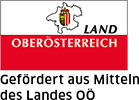European Nearly Zero Energy Buildings Conference
|
Date: Venue: |
27 - 28 February 2014 A-4600 Wels, |
|
|
Conference fee: |
190 Euro, includes also the Energy Efficiency Policies Conference, Innovative Building Technologies Conference (27 - 28 Feb. 2014) and technical site-visit (28 Feb 2014, afternoon)
The fee also includes an entrance ticket to the tradeshow and conference documentation. All fees plus 10 % VAT |
|
|
Conference languages: |
English, German, Russian |
|
|
Organisation and conference office: |
OÖ Energiesparverband |
|
|
The European conference to dicuss high efficiency buildings supplied by renewable energy: technologies, business models, policies, financing, definitions & national action plans, best practice examples, cost optimality of energy efficiency and renewable energy in new construction and renovation
|
||
PROGRAMME
Thursday, 27 February 2014
14.00 NZEB policies & market overview
- Opening & welcome
Rudi Anschober, Regional Minister for Energy, Upper Austria - Transition to sustainable buildings – strategies and roadmaps to 2050
John Dulac, International Energy Agency (IEA) - Progress in implementing the EU Buildings Directive
Claudia Canevari, European Commission, DG Energy - The implementation of the EU Buildings Directive in Austria
Gerhard Dell, OÖ Energiesparverband, Austria - Is cost-optimality driving buildings towards NZEB?
Bogdan Atanasiu, Buildings Performance Institute Europe
NZEB Market transition - how to make it happen?
- CEN building standards in practice
Jaap Hogeling, CENTC 371 Programme Committee on EPBD, ISSO, The Netherlands - NZEB renovation in the building stock: policies, impact and economics
Lukas Kranzl, Vienna University of Technology, Austria - Turning energy efficiency into sustainable business - a European roadmap
Luc Bourdeau, E2BA-Energy Efficient Building Association - European financing opportunities for building efficiency
Reinhard Six, European Investment Bank - Business models for upscaling building renovation
Paul Kenny, Tipperary Energy Agency, Ireland
18.30 End of the conference day
19.30 Evening event
Friday, 28 February 2014
09.00 NZEB strategies and technologies
- The European Building Policies
MEP Fiona Hall, Member of the European Parliament, Vice-President Eufores - The city of the future – research & technology development
Theodor Zillner, Federal Ministry for Transport, Innovation & Technology, Austria - Do smart meters create smart consumers?
Francisco Puente, ESCAN, Spain - Energy technologies for NZEB neighbourhood
Hans Erhorn, Fraunhofer Institute of Building Physics, Germany
Conference: Innovative and cost-efficient building technologies
10:30 Working Group: key factors for successful NZEB policies
Chairperson: MEP Fiona Hall, European Parliament, Vice-President Eufores
- National Plans – a comparison
Andreas H. Hermelink, Ecofys, Germany - The Danish National Plan
Kirsten Engelund Thomsen, Danish Building Research Institute, Aalborg University Copenhagen, Denmark - "Nearby" use of renewable energy sources
Jarek Kurnitski, Tallinn University of Technology, Vice-president REHVA, Estonia
Project flash – perspectives & initiatives
- Boiler exchange programmes - successfully driving down energy costs
Johannes D. Hengstenberg, CEO co2online, Germany - Legal and economic aspects of cross-building energy exchange
Markus Schwarz, P.MSc., Energieinstitut Johannes Kepler University Linz, Austria - Energy development plans - spatial planning for more energy efficiency
Tobias Wagner, Technical University Munich, Germany
12.50 End of the session
10:30 Innovative and cost-efficient building technologies
- Examples of cost optimal NZEB buildings
Tony Ryan, Kingspan/Ewan Jones, AECOM, UK - Pellets - economic heating systems for NZEBs
Herbert Ortner, ÖkoFEN, Austria - Solar thermal - a key technology for NZEBs
Pedro Dias, ESTIF
Building technologies of the future
- Cutting edge building technologies: the Energy Efficiency Center
Hans-Peter Ebert, The ZAE Bayern, Germany - Aerogels – a superinsulating building material
Eunate Goiti, Tecnalia, Spain - Selection and operation of building-integrated storage systems
Michael Danzer, ZSW, Germany
12.50 End of the session
13.30 - 17.45 Site-visit "Nearly Zero Energy Buildings"
Please also see the related conferences:
- WSED next Energy Efficiency
- Innovative Building Technologies Conference
- Energy Efficiency Policies Conference
- B2B-Meetings

The sole responsibility for the content of this webpage lies with the authors. It does not represent the opinion of the European Communities. The European Commission is not responsible for any use that may be made of the information contained there in.

